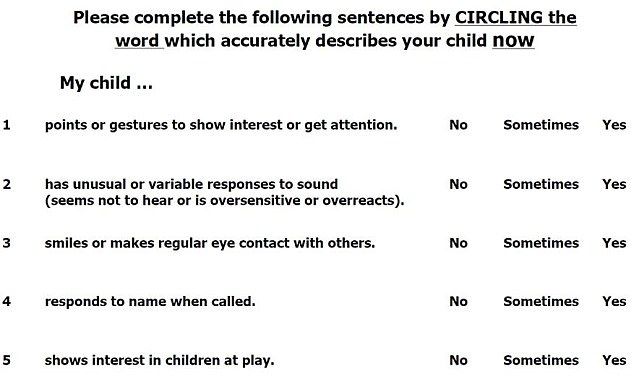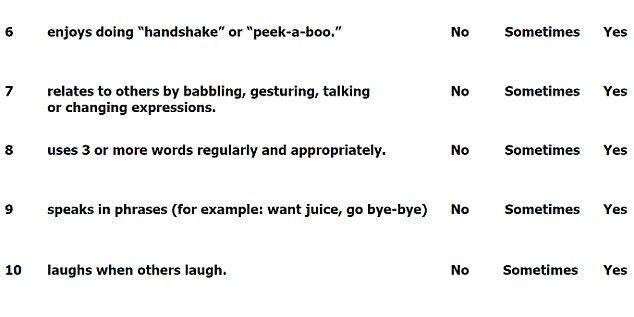In the United States, it is estimated that autism is prevalent in one in 68 births, and as of 2014, over 3.5 million Americans live with an autism spectrum disorder (ASD), according to the Autism Society.
The fast-growing developmental disability has no cure, however, studies have shown that early diagnosis is key in improving the quality of life of a person on the spectrum. Autism cannot be detected through methods like blood or urine tests, so doctors need to observe a child's development and behavior, which can prove to be challenging.
According to the Centers For Disease Control (CDC), while children on the spectrum tend to receive a diagnosis between the ages of 18 months and two, many "do not receive a final diagnosis until much older." Unfortunately, this delay could prevent them from getting the help they need early on.
Now, researches think they have found a solution that could solve this issue. A group of experts at Rutgers University have developed a quick two-minute test that professionals and parents can use to detect autism in their young child.
How does it work?
The Psychological Development Questionnaire (PDQ-1) is made up of ten questions that ask about certain behavioral characteristics of a child, including whether nor not they respond when their name is called out, show interest in playing with other children, and if they make eye contact with others.
"Our group was prompted to develop the PDQ-1 due to many parents of autistic children saying they regretted that their early concern with their children's development did not lead to quicker acknowledgement, evaluation and interventions for autism," the study's lead and associate professor of pediatrics at Rutgers University Dr. Walter Zahorodny told Daily Mail.

Dr. Zahorodny and his team of researchers collected data from around 2,000 children between the ages of one and three in order to determine the efficacy of their test. They discovered that the test was 88% accurate, which means that the children who scored high on the test actually had the disorder.
Dr. Zahorodny also admitted that they were taken aback by the fact that their test was able to detect autism in children from all walks of life. Previous studies have shown that Caucasian children are 19 percent more likely than black children and 65 percent more likely than Hispanic children to be diagnosed with autism.

"I was most surprised by how well the total PDQ-1 score discriminated ASD positive cases from children with typical development, across affluent and poor communities," said Dr Zahorodny.
It is possible that this new tool will eventually replace the current diagnosis techniques, which include the 20-question Modified Checklist for Autism in Toddlers.
"At this preliminary point, the PDQ-1 may be said to be more efficient, since it consists of fewer questions and does not require additional phone interviewing of screened cases, an important practical consideration for use by busy providers," Dr Zahorodny explained. He added, "Effective screening is but the first step toward diagnosis. If we want to improve early detection, easy-to-use and reliable autism screeners need to be widely used."
Since 2007, the American Academy of Pediatrics have recommended that pediatricians screen children for autism spectrum disorders at 18 and 24 months. Still, only 50 percent of children get screened, according to Dr. Zahorodny.
Do you or someone you know have a child with an autism spectrum disorder? Let us know!


